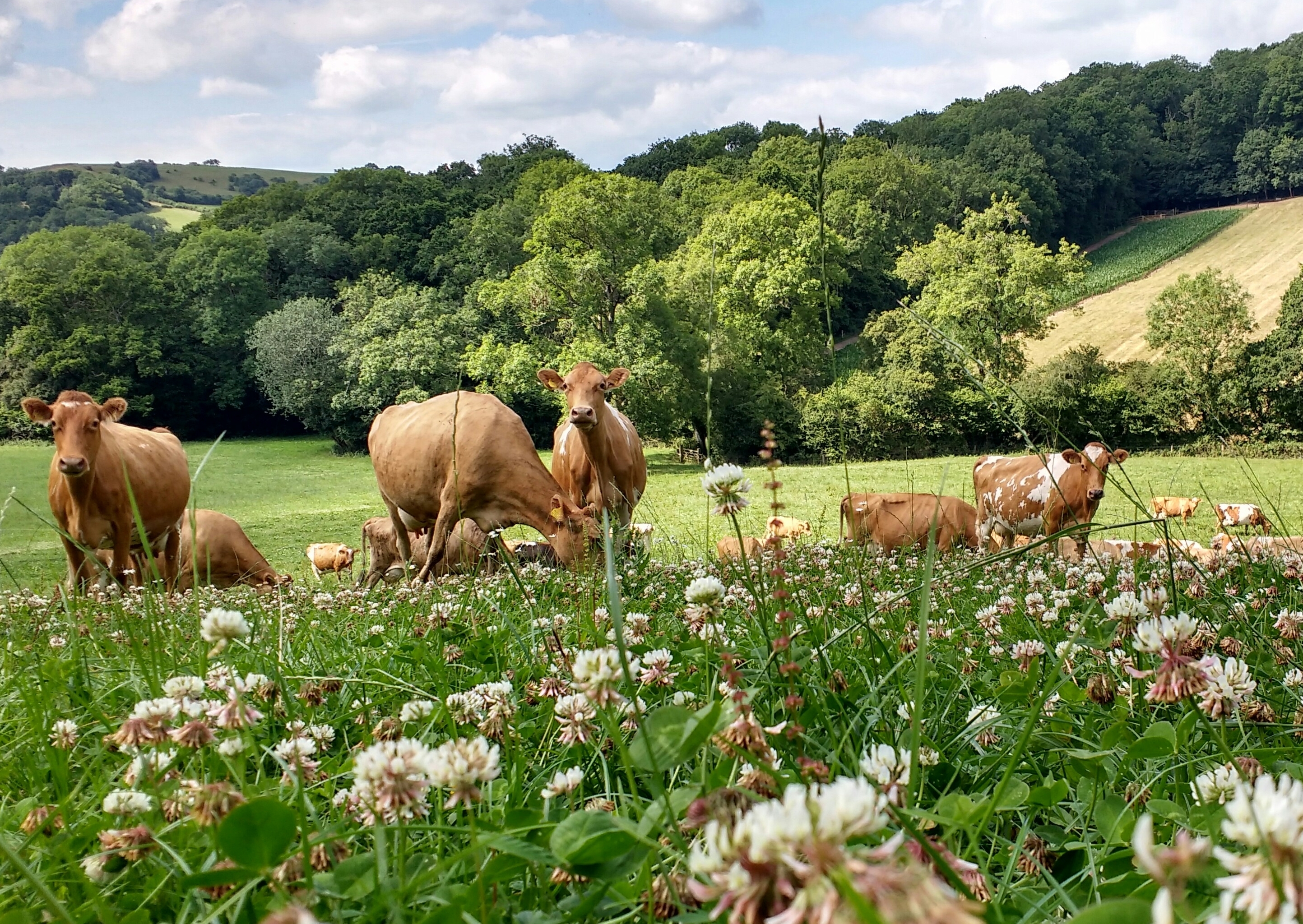
- Soil Association
- Take action
- Organic living
- What is organic?
- Organic milk and dairy

Organic milk and dairy
Understanding organic vs non-organic milk and dairy
A key difference is the way that organic milk and dairy products are produced.
Milk and dairy products labelled as organic must follow legal standards and be certified. These standards include opportunities for improved animal welfare and a quality free-range life, a grass-based diet and fewer artificial additives and preservatives. This makes sure the final product is one you can trust.
Key differences between organic and non-organic milk include:
Animal welfare:
Organic guarantees milk and other dairy products comes from grass-fed, free-range cows.
Soil Association’s Organic standards and certification process puts animal welfare at its centre. It focuses on quality of life for the cows and makes sure checks and safeguards are in place to monitor welfare in the inspection process.
Organic cows are truly free-range. They must all have plenty of space roaming outdoors at pasture for as much of the year as possible (weather conditions permitting). These conditions help to reduce stress and disease and give them the freedom and opportunity to express their natural grazing and social behaviours.
Many organic dairy herds “turn out” and go onto fresh pasture after being housed during the winter. This happens between late January to spring depending on weather and ground conditions (as to not damage the soil). During the winter, they must still have space to move and feed among their herd mates comfortably, as well as comfortable beds.
Learn more about welfare standards for organic cows.

Antibiotic use:
Organic farming standards ban the routine use of antibiotics and wormers, but if needed they are permitted to be used to prevent welfare compromise. Organic farming takes a preventative approach to disease instead of relying on the preventative use of antibiotics, reducing stress with a healthy outdoor environment and manageable milk yields.
Diet:
Organic animals must be fed a natural and organic diet. For cows, this means a grass-rich diet.
Non-organic cows are given on average a third more of concentrated feed to increase milk production. However, on organic farms, cows must be fed a minimum of 60% forage (grass-based diet). During the winter, when it is too cold for cows to be out on the grass itself, they still feed on preserved grass, clover and mixed forages.
This means that organic dairy has a 20% lower yield on average but it is more sustainable and helps to protect the animals’ health and welfare.
Grass on organic farms is rich in clover. Organic farmers use this to “fix” nitrogen from the air in the soil to help fertilise it, instead of using fossil fuel-based fertilisers, which are forbidden under organic standards. This results in higher levels of Omega 3 in organic milk compared to non-organic.

Dairy products – fewer additives and preservatives:
The use of additives and processing aids is heavily restricted in organic products. Certified organic processed foods containing dairy must be made in a way that guarantees the organic integrity of the product.
- Organic standards prohibit the use of toxic ingredients.
- GM ingredients, hydrogenated fats and controversial artificial colourings and preservatives are also banned under organic standards.
The organic standards for milk and dairy products ensure that the way it is produced does not harm the environment, human health, plant health or animal welfare.
Find out more about how products and ingredients from organic farms are better for nature, the planet and our health.

